Tea

Next to water, tea is the highest consumed beverage in the world. The antioxidant and flavonoids in ‘Camellia sinensis,’ simply known as tea, have helped millions, over the centuries fight cancer, heart diseases, diabetes, cholesterol and improve mental alertness. The antioxidant in black tea protects heart health. On this parallel, green tea has the most powerful antioxidants known to inhibit cancer cells and lower cholesterol.
Caution Owing to its caffeine content, excess tea intake can cause headaches, nervousness, irritability, irregular heartbeat, confusion and tremors. The tannin compounds in tea destroys iron and inhibits its absorption from food. It can exaggerate anaemia, when it is consumed with meals. The tannins in your tea can be diluted by adding some milk. Also, refrain from drinking tea along with meals. Allow for a time gap of at least three hours between a meal and drinking tea.
Healthy limit Restricting the intake of tea to three cups per day will help dodge its undesirable side-effects.
Spinach
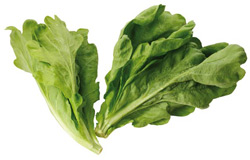
Could there be anything bad about this seemingly harmless green? No doubt, spinach is a marvel of nutrient synergy. It harbours lutein, vitamins A, B6, C, K and minerals such as selenium zinc, copper, potassium, magnesium and calcium. Now that’s a lot of goodies for your health, but you shouldn’t over indulge.
Caution Spinach contains ingredients which increase the risk of developing kidney stones. It also reduces absorption of calcium and can irritate the teeth temporarily.
Healthy limit Half or one cup of spinach a day should help soak up the goodies.
Garlic
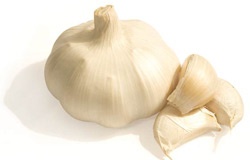
Garlic the superstar and antidote to high blood pressure contains the compound allicin that shields us from bacterial infections, H. pylori and cancer. Crushing the clove and allowing it to rest for about 15 minutes before heating, activates its protective enzymes.
Caution Overuse of garlic emanates bad breath and body odour apart from instigating burning sensations in the stomach. Vomiting and diarrhoea are not uncommon if consumed excessively. The risk of bleeding may be further augmented on consuming too much fresh garlic.
Healthy limit One clove of fresh garlic each day is recommended.
Dry beans
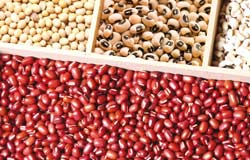
This versatile powerhouse is packed with low fat protein, soluble and insoluble fibre and iron. Beans can keep you feeling full for long, reduce bad cholesterol and help control blood sugars.
Caution Beans conceal several anti-nutritional properties, which reduce the absorption of zinc, iron, magnesium and calcium. Soaking, sprouting and cooking well, reduces its harmful effects. In spite of their outstanding nutrition contribution, legumes are not completely digested in the colon and can lead to cramping and flatulence. Astonishingly, beans coupled with inadequate water can lead to constipation. Boiling thoroughly helps reduce this effect by softening its fibre.
Healthy limit Half or one cup of beans, cautiously increased in amounts and distributed through different meals, can help assimilate all the valuable nutrients.
Flax seeds
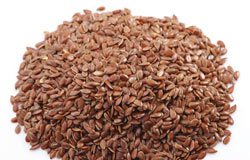
Lately, many recipes have been revved up to incorporate this mesmerising functional food. Flax seed owes its phenomenal popularity to the three compounds—ALA, lignan and fibre. Flax seeds are known to reduce triglycerides, risk of certain cancers, cholesterol and plaque formation.
Caution Ground flax seeds lose their nutritional potency due to oxidation. Grind flax seeds only if they will be consumed immediately. Flax seeds contain an anti-nutritional compound called cyanide in trace amounts and heat helps to break down cyanide. To avoid toxicity, roast flax seeds on mild heat. Don’t be over generous while sprinkling these seeds on your food because having them with inadequate water causes abdominal discomfort and increased bowel movement due to its laxative effect. Its lignans have an oestrogen like effect and perturb menstruation. Flax seeds also exaggerate the risk of bleeding due to enhanced blood thinning.
Healthy limit The Flax Council of Canada recommends 1– 2 tbsp of ground flaxseed each day as a safe intake.
Dark chocolate

For every chocoholic, there is some good and bad news. Good news is that dark chocolate with 70 per cent or more cocoa contains potential antioxidants. These help to unclog arteries, thwart the risk of a stroke, improve lipid profile and prevent diabetes and varicose veins
Caution Now for the bad news, the anti-inflammatory and anti-clotting benefit is surpassed when consumed in excess. Excess consumption leads to caffeine-related side effects such as, migraine headaches, anxiety, increased urination, sleeplessness, dehydration, irritability, raised blood pressure, confusion and palpitations. The high oxalate content may also increase the risk of kidney stones.
Healthy limit By restricting to 50g of dark chocolate per day, you can have your chocolate and eat it too.
Coffee
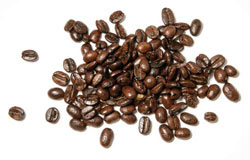
The morning cuppa not only perks you up but also lowers the risk of diabetes and heart diseases. Recent research suggests that coffee offers protection from Parkinson’s disease and liver cancer. Regular coffee drinking reduces the risk of developing gall stones.
Caution Wake up and smell the coffee! High consumption of coffee can worsen acidity. The caffeine in coffee elevates blood pressure and adrenaline. It can make one feel dehydrated because of its mild diuretic effect. The aftermath of the sugar and milk added in coffee can divert one from their weight goals. Caffeine, the mild addictive stimulant may compel reduced absorption of calcium. Over-consumption would induce cardiovascular effects like increased heart rate, blood pressure, irregular heartbeat, anxiety, irritability and lack of sleep.
Healthy limit 2 – 3 cups of coffee will avoid all unsolicited effects.
Bran
Muffins, cakes, breads—they are all being adorned with this super food. Bran is exuberant in insoluble fibre, selenium and vitamin E and B. It helps to feel full, regulate bowel movements, lower cholesterol, control blood sugar and also deter haemorrhoids.
Caution The abuse of bran leads to excess flatulence and abdominal discomfort. This is because methane gas is produced when the gut bacteria acts on it, especially during initial use. Excess fibre also reduces the uptake of certain essential minerals. Ensure a gradual intake with adequate water, to avoid cramps.
Healthy limit 20g of bran a day should shorten your toilet stay.
Soya
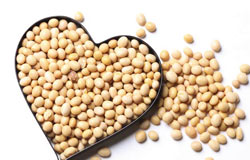
Soya has become the vegetarian’s answer to anyone who demands a good quality vegetarian source of protein. Moreover, its texture is such that it can be incorporated in non-vegetarian recipes and can be substituted for meat, without compromising the taste. This protein-laden food contains all the essential amino acids.
Caution One needs to be scrupulous about excess soya consumption due to the presence of phytoestrogens. These are plant compounds but they are similar to oestrogen in their action. Isoflavones may lower the hormone thyroxine and hinder thyroid function, particularly if your diet does not include much iodine. Soya has an inhibitory factor on iron absorption.
Healthy limit The American Heart Association [AHA] recommends not more than 25g of soy protein as a part of one’s daily diet.
Oats
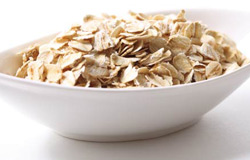
From bears depicted in fables to humans, almost everyone relishes this delectable super food. Oats has made its way into Indian kitchens and is being used to make everything from khichdis to idlis and upma.
Oats have strong antioxidant, anti-inflammatory and anti-itching properties.
Caution It is vital to note that not all oats have the same glycaemic index [GI]. Instant oats have a high GI rating, while rolled or steel cut oats have a lower GI rating; thereby the latter will lead to a comparatively smaller insulin spike and delay hunger. If you eat too much of this health promoting food, it may cause digestive discomforts like soft stools, belching and flatulence with delayed blood clotting.
Healthy limit 50 – 100g of whole oats product each day is considered safe.
 Spot an error in this article? A typo maybe? Or an incorrect source? Let us know!
Spot an error in this article? A typo maybe? Or an incorrect source? Let us know!
